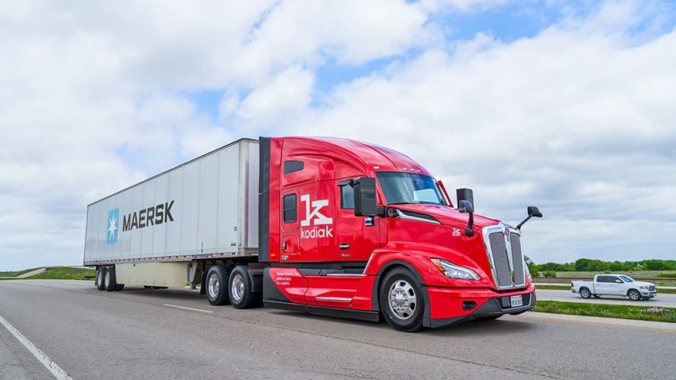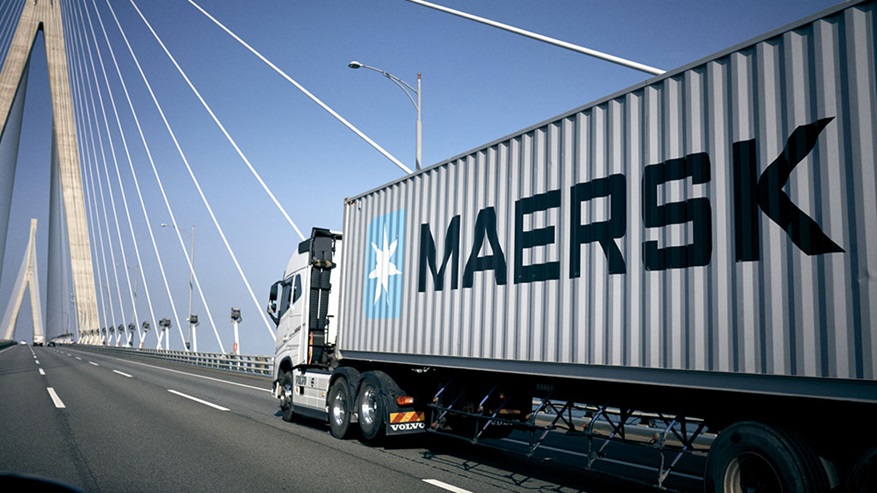Florham Park, New Jersey/Mountain View, California — A.P. Moller – Maersk AS (OTC: AMKBY) and Kodiak Robotics, Inc., have launched the first commercial autonomous trucking lane between Houston and Oklahoma City. The freight lane marks an expansion of the collaboration between Kodiak and Maersk, which began with their first autonomous freight deliveries together in November 2022 as part of Maersk’s Global Innovation Center Program. Kodiak has been delivering eight loads per week, with a safety driver behind the wheel, for Maersk customers since August.
Kodiak and Maersk are completing four round trips per week on a 24-hour-a-day, four-day-a-week basis between a Houston facility, where consumer products are loaded onto 53-foot trailers, to a distribution center in Oklahoma City. Operational learnings gained from the activity are captured and documented as part of the Kodiak Partner Deployment Program, which is designed to help companies learn how Kodiak’s self-driving trucks can become an integral part of their overall logistics strategy and offerings.
Autonomous trucking solutions have the potential to address long-term challenges faced by the trucking industry. According to the American Trucking Association, the trucking industry faces a shortage of roughly 78,000 drivers. The ATA estimates that, based on current driver demographic trends, as well as projected growth in freight demand, the shortage could swell to more than 160,000 over the next decade.
Safety continues to be a perennial challenge for the trucking industry as well. U.S. National Highway Traffic Safety Administration (NHTSA) research also estimates that 94% of crashes occur due to human error. For Kodiak, safety and performance are foundational to its autonomous trucking solution. Each vehicle is equipped with 18 different sensors, including cameras, radar, and lidar, that provide the platform with a 360-degree view around the truck. Every tenth of a second, the truck evaluates the performance of more than 1,000 safety-critical processes and components in both the self-driving stack and the underlying truck platform. The trucks learn in parallel, with system upgrades shared to the entire fleet simultaneously, and are not subject to environmental distractions.

